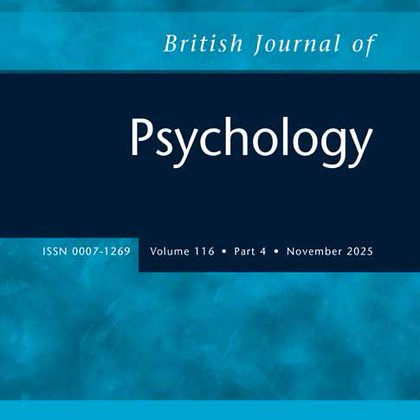
Shiri Lev-Ari
@shirilevari
Followers
785
Following
480
Media
39
Statuses
591
Cognitive psychologist studying language and (real life) social networks. Can also be found on: @shirilevari.bsky.social
Joined January 2010
If you don't want to read my full paper (How can you not want to read a paper called "Sorries seem to have the harder words"!?), here's my summary of it: How to make your apology more effective – new research https://t.co/P1cSF6jv7N via @ConversationUK
theconversation.com
Sorry really can be the hardest word.
0
0
1
So apologizers use words that are hard to produce (but not hard to understand), and this strategy works! Link:
bpspsychub.onlinelibrary.wiley.com
Is someone who says ‘I'm genuinely sorry’ more sorry than someone who says ‘I'm really sorry’? The studies in this paper show that people use longer words when apologizing (Study 1) and interpret...
0
0
0
Apologies with long words were perceived as more apologetic than those with shorter words that were matched for frequency. In contrast, word frequency did not influence how apologetic the sentence seemed.
1
0
0
But is this strategy effective? To test that, participants were presented with triads of apologies that had the same meaning but differed in word length or word frequency. The triad sentences appeared in random order and participants ranked them from most to least apologetic.
1
0
0
Apology tweets of 25 celebrities and 25 non-celebrities were compared to other tweets by the same users. Apology tweets had longer words! In contrast, they didn’t have more infrequent words.
1
0
0
Longer words and infrequent words are harder to produce, so these might be good candidates for apologies. But infrequent words are also harder to understand, so they will burden the addressee. A sophisticated apologizer might then use longer words but not infrequent words.
1
0
0
They make the apology costly by investing time, money, or effort (e.g., traveling specifically to apologize to a friend vs apologizing to them the next time you happen to meet them). What about making the apology itself more costly by producing words that are harder to produce?
1
0
0
Apologies are cheap – anyone can apologize regardless of whether they’re sorry. So how do apologizers convince the recipients that they are sincere?
1
0
0
📢📢📢New paper: SORRIES SEEM TO HAVE THE HARDER WORDS Link: https://t.co/XZUR1PsXvt 🧵
bpspsychub.onlinelibrary.wiley.com
Is someone who says ‘I'm genuinely sorry’ more sorry than someone who says ‘I'm really sorry’? The studies in this paper show that people use longer words when apologizing (Study 1) and interpret...
1
0
0
Looking forward to visiting!
Looking forward to our first #LangSci talk of 2025: Shiri Lev-Ari @shirilevari from Royal Holloway, University of London @RoyalHolloway will give a talk on "Language from a social networks perspective" Thursday, January 23rd, at 16:15! #colloquium
0
0
0
Want to do a PhD about the influence of psychological biases on technological progress? Email us. If not, please retweet
1
11
22
📢PhD funding! Intersted in cultural evolution or behavioral economics? Or perhaps just interested in how psychological biases influence technological progress? Come and do a PhD with me! For more info about the studentship: https://t.co/yuMoEeZ7Ix
0
4
5
Native speakers were more sensitive to the existence of emotional mitigating circumstances. While everyone assigned lighter sentences when there were emotional mitigating circumstances, the difference in punishment between the two types of crime was larger for native speakers.
1
0
0
Native and non-native speakers of English listened to confessions of the emotional (fraud to pay for wife's medical treatment) or non-emotional (fraud to afford luxury goods) version of crimes and decided on punishment.
1
0
0
What are the consequences for judicial decisions? We test whether non-native speakers are less sensitive to the existence of emotional mitigating circumstances, such as, committing fraud to pay for a wife’s life-saving medical treatment.
1
0
0
Both self-reports and physiological measures show that bilinguals experience reduced emotion in their second language. This leads them to also be less influenced by emotion when making decisions in a foreign language.
1
0
0
Do native and non-native speakers make different judicial decisions? 📢📢📢 First paper for my MSc student Marie-Christine Rühle 📢📢📢 https://t.co/J2i1PjULq2 🧵
1
0
3



